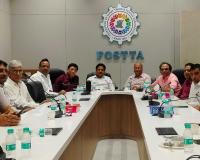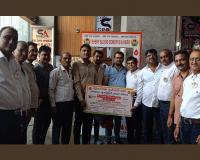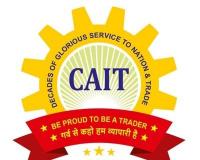SGCCI Urges Centre to Remove QCO from Textile Machinery, Meets Union Minister Kumaraswamy

Surat: The Southern Gujarat Chamber of Commerce and Industry (SGCCI) has formally urged the central government to remove the Quality Control Order (QCO) from textile machinery, citing concerns over its potential impact on the textile sector’s growth and technological advancement.
In a high-level meeting held in New Delhi, SGCCI Vice President Ashok Jirawala and former President Ashish Gujarati presented their proposal to India’s Union Minister for Heavy Industries, H.D. Kumaraswamy, and Joint Secretary Vijay Mittal. As per agency report, the meeting was also attended by representatives from prominent industry bodies including FICCI, ASSOCHAM, Gujarat Chamber of Commerce and Industry (GCCI), and Arvind Mills, all of whom unanimously advocated for the removal of QCO on textile machinery.
The SGCCI delegation highlighted that India’s current textile market, valued at USD 165 billion, is projected to reach USD 350 billion by 2030. To meet this growth target, the industry will require approximately 4.5 lakh high-speed weaving machines, necessitating an estimated investment of USD 15 billion. A list of machines not manufactured in India and hence essential for import was also submitted to the minister.
Ashok Jirawala pointed out that embroidery technology evolves rapidly, with machinery often requiring upgrades every two to three years. Since many of these advanced machines are not produced domestically, Indian entrepreneurs depend heavily on imports. Thus, they emphasized the need to exclude embroidery machinery from QCO regulations.
Representatives from GCCI also informed the minister that several entrepreneurs have already opened Letters of Credit (LCs) and booked machines from abroad. If the delivery of these machines occurs after August 28, 2025, and QCO remains in effect, the machinery will be held at ports, resulting in significant financial losses. Furthermore, banks may hesitate to finance such ventures, potentially slowing industrial growth.
Following the presentation, Minister Kumaraswamy and the joint secretary responded positively and assured that the concerns of the user industry would be considered. They added that the Ministry of Textiles would engage in consultations with all stakeholders before taking a final decision.
This development is seen as a critical step for Surat and the larger Indian textile industry, potentially accelerating innovation and production efficiency across the sector.






